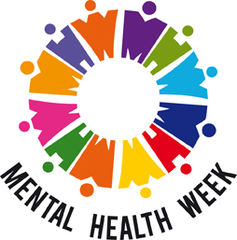
This week is Mental Health Week in Australia. A time to recognise the common burden of mental illness, support those affected, celebrate the hard work of people and organisations working to improve our mental health, and become more familiar with ways to protect healthy minds.
So here are some key messages from this year’s Mental Health Week:
1. Everyone is affected in some way
In Australia, one in five of us experiences a mental illness in the average year. Almost half of Australians aged 16-85 years will experience a mental illness at some stage during their lives.
Mental illness is the third highest cause of morbidity in Australia, accounting for almost 3 in 10 years lost to disability in the population. Major depression makes up more days lost to illness than almost any other illness.
2. Stigma is a barrier to awareness, prevention, diagnosis & care
Despite mental illness being common in Australia – and an illness like any other – it still attracts an enormous amount of stigma. A barrier to discussion and awareness, stigma around mental illness also affects the acceptability and therefore access to prevention and diagnosis services – and care generally.
3. The burden is global
We might think of mental health as a rich country’s problem – but it’s not. Mental illness is a challenge for health globally – nearly 450 million people have mental illness and more than 3 in 4 live in developing countries. This burden is further compounded by a lack of treatment in these countries, limited by resources. In Nigeria, for example, 25% of patients seen in local health centres have significant depression symptoms yet few are diagnosed and only one in six of those who are diagnosed will get treatment.
4. Great people are doing great things
Despite all this, there are great people doing incredible work in the mental health space – and this must be acknowledged and celebrated. Groups like Smiling Mind, BeyondBlue, Butterfly Foundation and Blackdog Institute work at the grassroots and policy levels to address the challenges of unmet need and under-recognised illness. This week, the Australian Medical Students’ Association turned blue to celebrate and promote mental health to medical students – a powerful and meaningful effort to protect the next generation in their sector.
5. Safe-guarding your mental health is possible
Finally, it’s crucial to know that safeguarding your mental health is possible – reducing your chances of mental illness.
Here are 10 great ideas from the Better Health Channel – including connecting to others, taking time to enjoy, contributing to community, dealing with stress, taking care and challenging yourself.
Well worth a read!
Faces of Mental Health
This week, it is also important to remember and support people that are affected by mental illness. Here are some personal stories from NCDFREE’s The Face of NCDs – insights into mental health, from those affected and those around them.

“It’s just as difficult to explain how much it can affect your life, as it is to explain how it doesn’t define your life. If we could feel grateful for our existence every single day, then of course we would choose that path – but life isn’t static, it’s undulating. We all experience peaks and troughs. Depression just makes those troughs a little deeper at times. Talking about it definitely helps, but being listened to without judgement is key.” – Juliette, Melbourne
“Mental illness is an NCD that doesn’t just touch the sufferer, it ripples on and impacts friends, families, relationships in ways that can be quite hard to define and quantify. It’s not linear. It’s not simple. We don’t fully understand it yet. Significant people in my life have struggled with mental illnesses, and I want to do more than just stand helplessly on the sidelines.” – Jo, Freeemantle

“I couldn’t make my children’s dinners. I couldn’t go to my work. I couldn’t get up from my bed. I couldn’t go to the shower. This stayed the way for about 5 to 6 years. I eventually had to be admitted to a psychiatric ward after not eating for 3 weeks. If I didn’t receive this treatment, then I simply wouldn’t be here.” – Debbie, Glasgow
“Mental illness affects the lives of not only the people who suffer, but also their families and loved ones. It does not discriminate, and its effects are almost always detrimental. As a future medical provider, I know I’ll use this understanding to avoid passing judgement on anyone who walks into my clinic in the future.” – Charlie, North Carolina
For more personal stories on mental health and NCDs, head to The Face of NCDs today.
–

In 2014, Mental Health Week will run from Sunday 5th to Saturday 11th October. World Mental Health Day is marked every year on the same date: 10th of October.
To learn more about those working in, or affected by mental illness and NCDs – head to www.thefaceofncds.org
Alessandro R Demaio does not work for, consult to, own shares in or receive funding from any company or organisation that would benefit from this article, and has no relevant affiliations.
